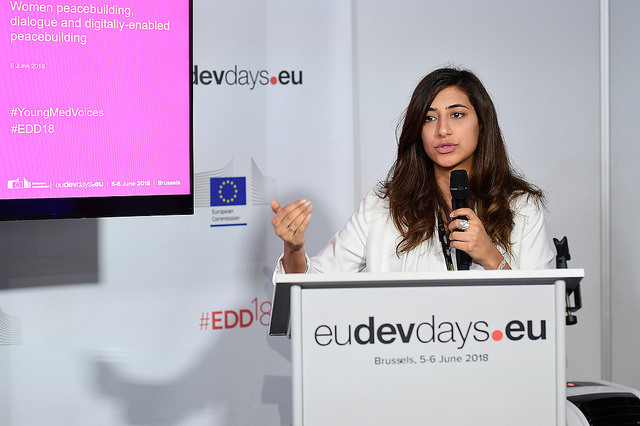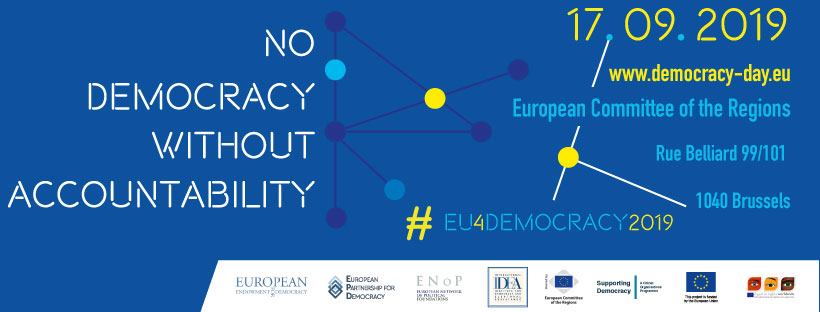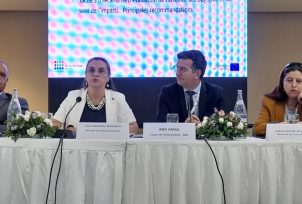Young Med Voices leads debate on digitally-enabled peacebuilding at European Development Days 2018

A Young Mediterranean Voices (YMV) Lab Debate was featured last week at the 2018 European Development Days (EDDs) on the theme of “Women, dialogue and digitally-enabled peace-building”. Co-organised by the Anna Lindh Foundation and the British Council, the YMV Debate focused on how innovative technologies provide new opportunities to connect young women as dialogue actors and reach those who are most likely to be left behind. The debate lab was an opportunity to share first-hand the methodology of the Young Mediterranean Voices programme in terms of its debate format and intercultural dialogue.
The session provided evidence-based insights on ways to promote young women’s participation and inclusion through innovative online tools such as the pilot Erasmus+ Virtual Exchange, and consolidated concrete policy actions on the debated theme.
The young debaters from Algeria, Spain, Tunisia, the UK and Egypt explored how, on the one hand, innovative technologies provide new opportunities to connect young women and promote their socio-cultural and political participation and, on the other hand, how social media is not necessarily the best tool for youth and women-led peacebuilding and therefore its dangers should not be underestimated.
The Anna Lindh Foundation and the British Council management spoke at the end of the session to underline their commitment to the programme expansion and investment in new monitoring and evaluation and communication strategies to expand the programme’s methodology and contribute to enhancing the Africa-EU cooperation.
Young Mediterranean Voices builds on the successful precursor programme “Young Arab Voices” (YAV) launched in Alexandria in 2011 by the Anna Lindh Foundation and the British Council in response to the uprisings in the Arab region. YMV is funded through an Action Grant of the European Commission (DG NEAR), and co-financed by the Government of Finland and World Bank Group.
Read more
Anna Lindh Foundation – website




























 Syria
Syria 





